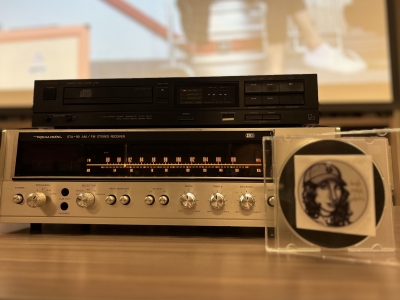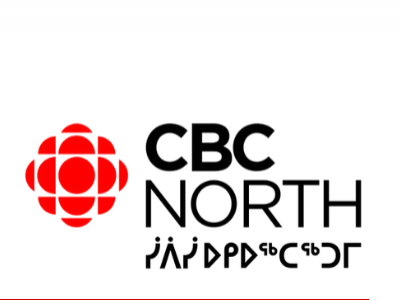Six Master of Journalism students will be travelling to five different continents to conduct fieldwork for their Master’s Research Projects, supported by more than $35,000 in funds from the School’s major internal awards. They will be producing stories on topics ranging from the experience of refugees fleeing war-torn regions to environmental activism in Chile and Southeast Asia; from the harmful role of education policy toward Indigenous peoples to the radicalization of youth in the best-educated state in India.
 The Bill McWhinney award is named after the late CEO of the Canadian International Development Agency and supports work related to international development issues. This year’s winner is André Sponder, a licensed civil engineer who has worked at the Canadian Museum of Science and Technology as a school educator. She will be examining the export of plastic recyclables from Canada to Southeast Asia, and efforts by environmentalists to improve plastic recycling conditions in these countries.
The Bill McWhinney award is named after the late CEO of the Canadian International Development Agency and supports work related to international development issues. This year’s winner is André Sponder, a licensed civil engineer who has worked at the Canadian Museum of Science and Technology as a school educator. She will be examining the export of plastic recyclables from Canada to Southeast Asia, and efforts by environmentalists to improve plastic recycling conditions in these countries.
 The Diane King Stuemer award is named after a 1981 graduate of the School who documented her family’s four-year travels around the world in a 42-foot ketch, the Northern Magic, in a series of dispatches for the Ottawa Citizen and in a subsequent book. The award is intended to allow a student to explore the world beyond Canada’s borders. This year’s winner is David Lochead, who holds a B.A. in International Development from Dalhousie University and has worked with the Broadbent Institute. He will be documenting the efforts of activists to persuade the government of Chile to address the effects of climate change, which have already made themselves felt in elongated droughts and unusual periods of rainfall in the South American nation.
The Diane King Stuemer award is named after a 1981 graduate of the School who documented her family’s four-year travels around the world in a 42-foot ketch, the Northern Magic, in a series of dispatches for the Ottawa Citizen and in a subsequent book. The award is intended to allow a student to explore the world beyond Canada’s borders. This year’s winner is David Lochead, who holds a B.A. in International Development from Dalhousie University and has worked with the Broadbent Institute. He will be documenting the efforts of activists to persuade the government of Chile to address the effects of climate change, which have already made themselves felt in elongated droughts and unusual periods of rainfall in the South American nation.
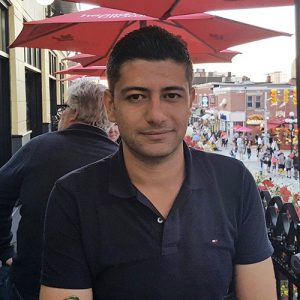 The Harold A. Morrison award is named for one of the first graduates of the Journalism program at Carleton who went on to become Canadian Press bureau chief in Washington and London. The winner is Maan Alhmidi, who was a law student in Syria in 2011 when he took up the cause for regime change and was arrested by military intelligence for his writing and activism. After his release, he first moved to Turkey, from where he served as political section editor for the London-based news organization Al-Araby al-Jadeed, and then migrated to Canada. He will be assessing the successes and weaknesses of the Canadian government’s Syrian Refugee Initiative, through which some 60,000 Syrians have settled in the country.
The Harold A. Morrison award is named for one of the first graduates of the Journalism program at Carleton who went on to become Canadian Press bureau chief in Washington and London. The winner is Maan Alhmidi, who was a law student in Syria in 2011 when he took up the cause for regime change and was arrested by military intelligence for his writing and activism. After his release, he first moved to Turkey, from where he served as political section editor for the London-based news organization Al-Araby al-Jadeed, and then migrated to Canada. He will be assessing the successes and weaknesses of the Canadian government’s Syrian Refugee Initiative, through which some 60,000 Syrians have settled in the country.
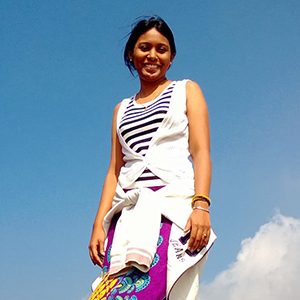 The Peter Stursberg award is named for the legendary CBC Second World War correspondent who was also one of the first anchors of the CTV National News. The award supports journalistic work on war, conflict, and reconciliation. The winner is Niranjalli Varma, who holds an M.A. in Mass Communication and Journalism from Mangalore University, India. She will travel to Kerala, India – the best-educated and most diverse state in the country – to investigate why it has proven to be fertile recruiting territory for Islamic extremist groups, including ISIS.
The Peter Stursberg award is named for the legendary CBC Second World War correspondent who was also one of the first anchors of the CTV National News. The award supports journalistic work on war, conflict, and reconciliation. The winner is Niranjalli Varma, who holds an M.A. in Mass Communication and Journalism from Mangalore University, India. She will travel to Kerala, India – the best-educated and most diverse state in the country – to investigate why it has proven to be fertile recruiting territory for Islamic extremist groups, including ISIS.
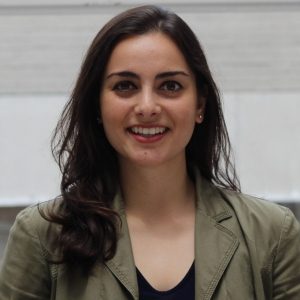 The G. Stuart Adam award is named after a graduate of the School who went on to become its Director, then Dean of Arts, then Provost of the university. The winner is Menaka Raman-Wilms, who holds an M.A. in English (Creative Writing) from the University of Toronto. She will document the experience of young refugees who arrived in Berlin in 2015 without a parent or guardian, displaced by conflict in the Middle East. Some 42,000 such refugees arrived in Germany in that single year, the vast majority of them boys and young men.
The G. Stuart Adam award is named after a graduate of the School who went on to become its Director, then Dean of Arts, then Provost of the university. The winner is Menaka Raman-Wilms, who holds an M.A. in English (Creative Writing) from the University of Toronto. She will document the experience of young refugees who arrived in Berlin in 2015 without a parent or guardian, displaced by conflict in the Middle East. Some 42,000 such refugees arrived in Germany in that single year, the vast majority of them boys and young men.
 The Political Reporting award has been won by Dexter McMillan, who holds a B.A. in Psychology from the University of British Columbia and has worked in heath care management in East Vancouver. He will conduct a comparison of the Canadian Indian Act and the South African Bantu Education Act, examining the intent and effects of both education policies for Indigenous peoples, and the prospects for reconciliation.
The Political Reporting award has been won by Dexter McMillan, who holds a B.A. in Psychology from the University of British Columbia and has worked in heath care management in East Vancouver. He will conduct a comparison of the Canadian Indian Act and the South African Bantu Education Act, examining the intent and effects of both education policies for Indigenous peoples, and the prospects for reconciliation.
Friday, April 5, 2019 in Journalism News, News
Share: Twitter, Facebook


